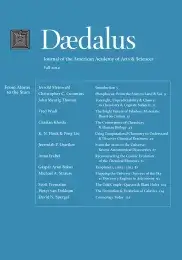What Ought Humanists To Do?
I am honored to contribute to this issue of Dædalus, “What Humanists Do.” Each contributor was asked by guest editor Denis Donoghue to identify a text that has meant much to her or him, then discuss it. This assignment presupposes that humanists spend much of their time interpreting texts and promoting their circulation among their students, readers of their scholarship, and the general public. It is as though we contributors were asked, “Come on now, account for your activities as humanists. Tell us what you do. Tell us why what humanists do contributes to the public good!” I promise further on to give such an accounting for my own work. First, however, I need to make a few preliminary remarks.
1) Such an issue of Dædalus would not be needed if the social utility of what humanists do were not the subject of widespread doubt. That utility used to be taken for granted. It is hardly necessary to rehearse the evidence for this doubt. A high-level administrator at Harvard is reported to have said a few years ago, “The humanities are a lost cause.” Humanities departments around the country are being either abolished or amalgamated, for example into a single department of “Literature and Cultural Studies,” or into a single department of “Foreign Languages.” President Obama, in his eloquent speeches about the need for increased support for education in the United States, always speaks about science and math, never once, to my knowledge, about the need for more and better humanities teaching. . . .
